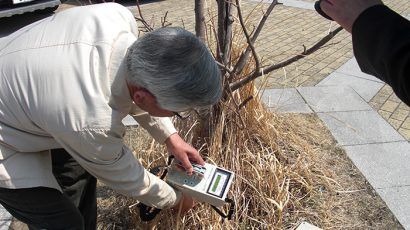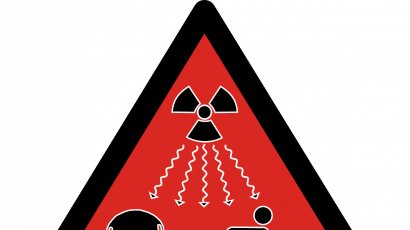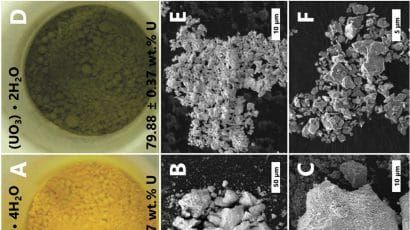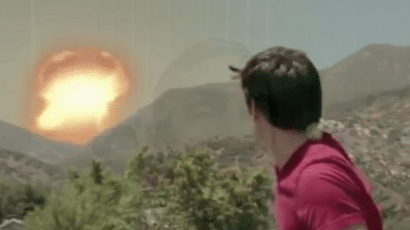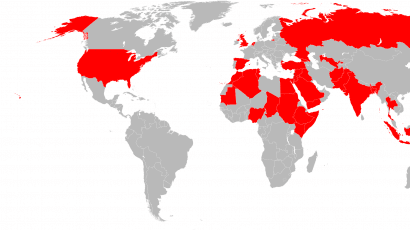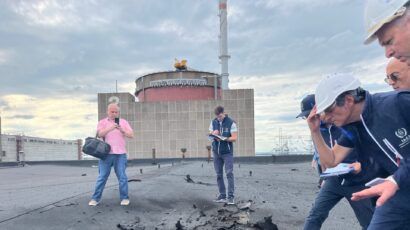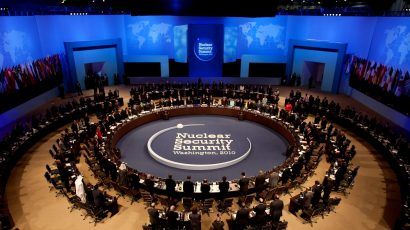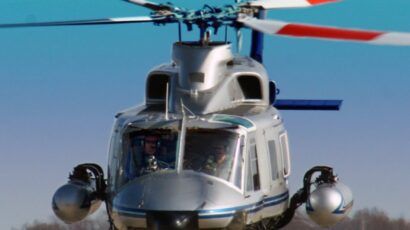Search results for nuclear terrorism
President Barack Obama's upcoming Nuclear Security Summit has the potential to become a defining moment for international security in the twenty-first century, especially after the recent release of the U.S. Nuclear Posture Review. When he introduced this document, Obama said, "For the first time, preventing nuclear proliferation and nuclear terrorism is at the top of America's nuclear agenda."
Promises, promises: A progress report one year after the 2010 Nuclear Security Summit
Two years ago in Prague, President Barack Obama laid out his vision of a world free of nuclear weapons. Recognizing that this would not likely be achieved in his lifetime, he outlined practical steps by which the international community might strive for greater security in a world where nuclear weapons still exist. One of these steps was the four-year goal to secure all loose nuclear material -- almost immediately after his speech, concerns about nuclear terrorism and nuclear material security were prominent on the international agenda.
Preventing the preventable: Strengthening international controls to thwart radiological terrorism
Global efforts to keep radioactive materials secure are based on an IAEA code of conduct that countries are under no obligation to follow or implement. The time has come to make this code of conduct a legally binding agreement that would promote national accountability and help prevent radiological terrorism.
Nuclear forensics: How science helps stop the trafficking of nuclear materials
If criminal drug traffickers in a relatively secure country like Australia could obtain uranium for no apparent reason, how many more radioactive materials must be out on the black market, available for purchase by the highest bidder?
Twenty years after 9/11, terrorists could still go nuclear
Is a terrorist nuclear attack still something to worry about, 20 years after 9-11? The short answer, unfortunately, is “yes.” The probability of terrorists getting and using a nuclear bomb seems low—but the economic, political, and social consequences would reverberate far and wide—and change history.
Lessons from Zaporizhzhia: How to protect reactors against ‘nuclear piracy’
The attack and occupation of nuclear reactors by Russia—a nuclear weapon state—exposed a wholly new kind of risk, which needs a new term.
Would terrorists set off a nuclear weapon if they had one? We shouldn’t assume so
Terrorists could use a nuclear bomb in ways that don’t include detonating it. By planning for a range of scenarios, policymakers can prevent the worst outcomes from happening.
Nerds, ninjas, and neutrons: The story of the Nuclear Emergency Support Team
Recently declassified material and other information that has never before appeared in the public domain allow a glimpse into the workings of the Nuclear Emergency Support Team —often one of the first agencies to respond whenever there is an incident involving a nuclear weapon or a nuclear reactor.
Why Biden’s new nuclear security agenda might not work as planned
Without sufficient international cooperation Biden’s new nuclear security agenda is unlikely to succeed, a nuclear security expert argues.
Nuclear Roundup: 2/8/2017
A compilation of quality nuclear policy news published on the Web, around the world. Iran Nuclear Deal Donald Trump’s stance on Iran nuclear deal could mean trouble ahead United States Monroe: Trump should undo Obama’s disastrous nuclear policies Alexander Gillespie: Nuclear winter just a GOP-skipping Trump away International How to really deal with the North … Continued
What if nuclear weapons are used?
The world relies too much on the indefinite continuation of the post-1945 taboo on military use of nuclear weapons.
A complex nuclear situation, in a complicated world
The text of an address given at the Asahi Shimbun Symposium in Nagasaki, Japan, late in July.

